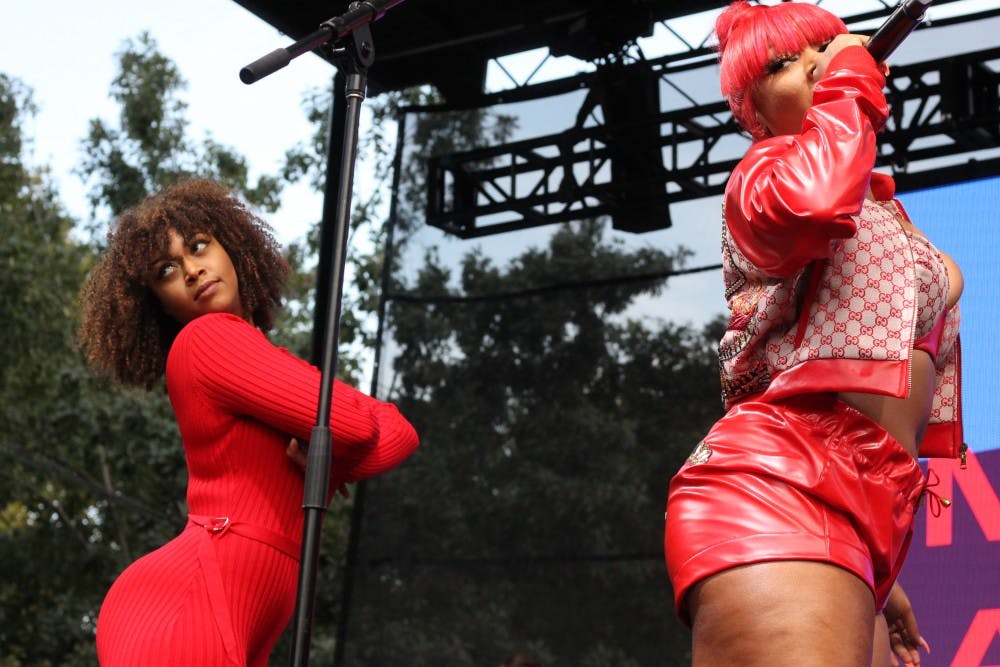For years, men have taken the front seat when it comes to driving the rap industry. We cried over Drake, got hype to Tyga features, suffered through the phase where every rapper name was preceded with the word “lil”, and tried to ignore problematic figures like XXXtentacion and Kanye. This meant that women had to learn to brush over lyrics that are definitely not empowering, such as “tried to domesticate you... but you’re an animal” and “got a reputation for yourself now...started wearing less and going out more." It also meant unconsciously harboring guilt for doing things that men are praised for in music, such as having multiple sex partners or partying.
But, thanks to Megan Thee Stallion’s “hot girl summer” movement, many girls may have been inspired to let loose this summer—without the guilt. After all, it’s hard not to want to after seeing Megan “drive the boat” with her friends, or hang out on Instagram live with fellow rappers.
This is not to discount the work of other older female rap figures, such as Nicki Minaj, but back then, it seemed as if there could only be one “rap queen.” New female rappers were posed as threats to whoever happened to be at the forefront of female rap at that time, and it led to toxic competition.
But now we have multiple popular, female rap artists. Cardi B, Rico Nasty, Doja Cat, and of course, Megan Thee Stallion, are just a few examples. However, this new wave of female rap has led to criticism. For instance, Jermaine Dupri, a rapper and record producer, claimed all female rappers are “rapping about the same thing” and doesn’t think that “they're showing us who is the best rapper.” He likens the female rap game to “strippers rapping.”
Others have echoed this sentiment, especially concerning CupcakKe, who is known for her provocative music. YouTube took down her music videos (“Duck Duck Goose” and “Deepthroat”) despite the fact that videos made by male rappers are often equally explicit. When she was going to perform at Yale, she faced criticism from Yale students–even though A$AP Ferg was also performing, who uses similarly explicit lyrics. The difference is that he faces no criticism.
Slut–shaming Cupcakke means that people fail to recognize that much her music speaks about trauma, abuse, black femininity, and power dynamics, and ignore that she has been applauded by publications such as Pitchfork. But this justification shouldn’t be needed because male rappers don’t need this justification. After all, Kodak Black sings in his song "Pimpin Ain't Easy," “I’m fuckin' Young M.A., long as she got a coochie,” despite Young M.A. being openly lesbian. The double standard in the industry is indisputable.
Even when women primarily rap about more “serious” topics, they are criticized. This can be seen with Cardi B, who stated that she started “rapping about [her] pussy again” due to people complaining about her confessional track, “Be Careful.” While men are given free reign to explore what they want and are often praised for doing so, female rappers—who are finally regaining autonomy and control over their bodies—are constantly reduced to tropes.
It’s important that we continue to fight for women to be able to express their sexuality, or whatever they want to express, through music. Music is just one piece of a larger puzzle that promotes a culture where many men think it is acceptable to do things to women that their favorite rappers describe, and these songs are oftentimes the backdrop to parties. If we have powerful bops made by confident women—rather than music that has misogynistic lyrics from men—perhaps we can begin changing this culture.
So perhaps most listeners of "Hot Girl Summer" simply thought it was a good song that will forever be a marker of positive summer memories. But hopefully, as the year progresses, we begin to realize that this type of music is much deeper and much more powerful than just a summer ballad—it's part of an essential culture shift that this society needs.







